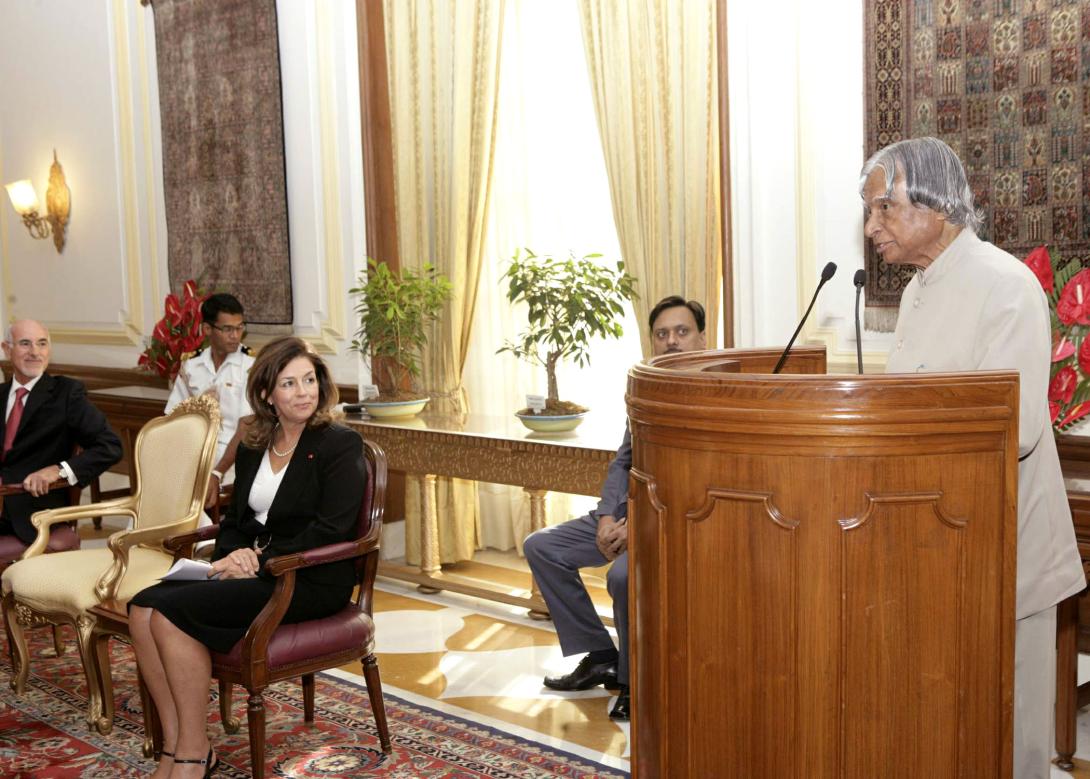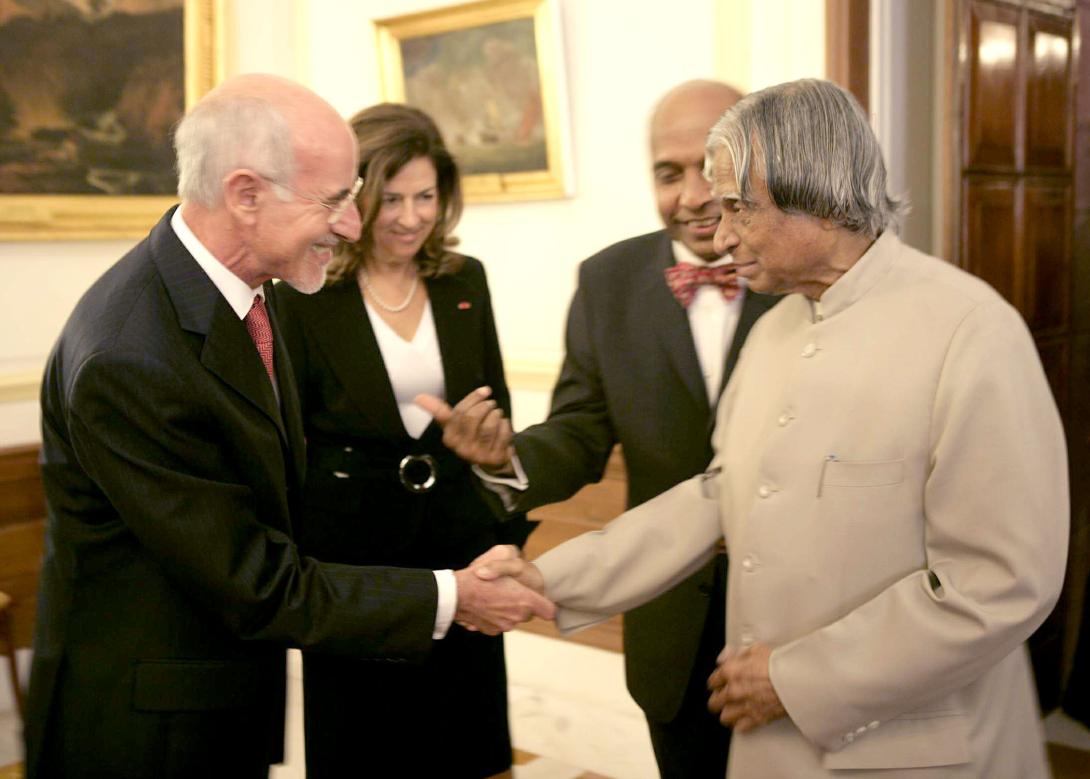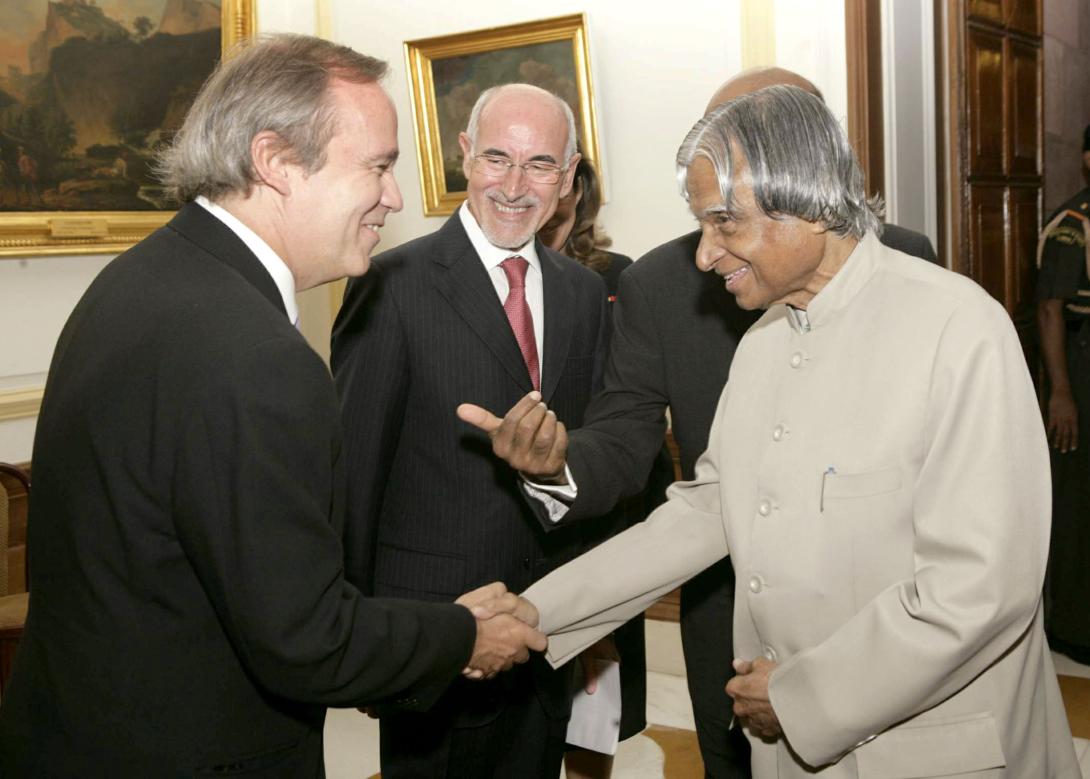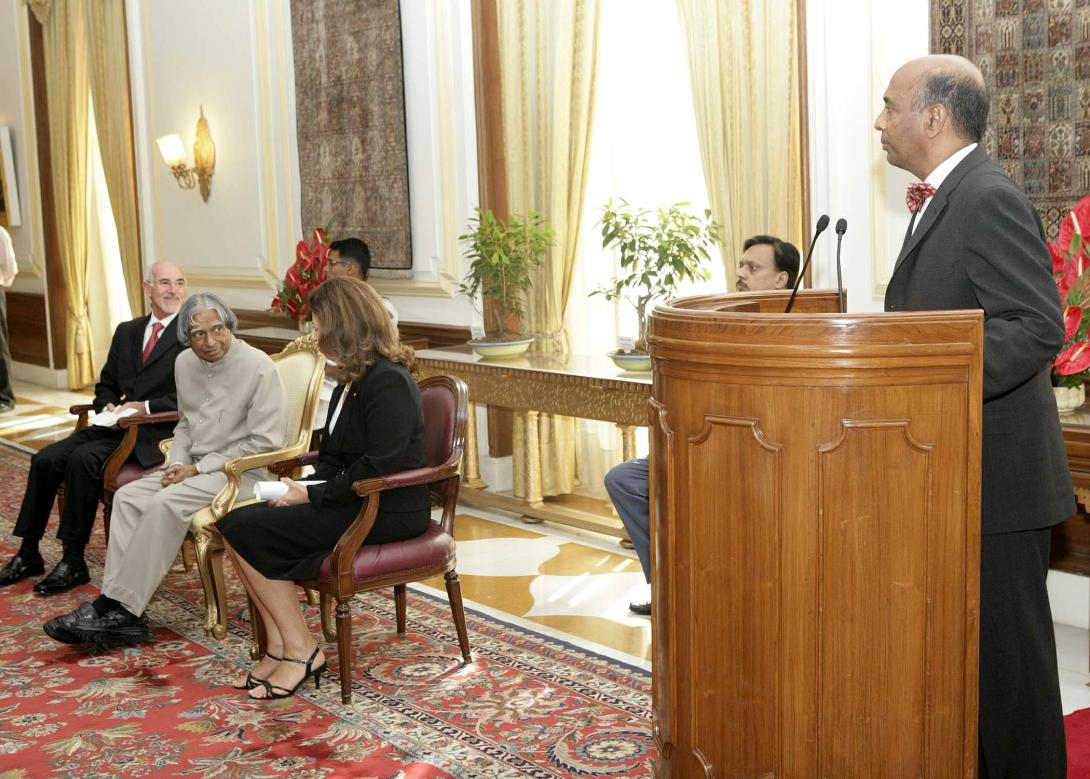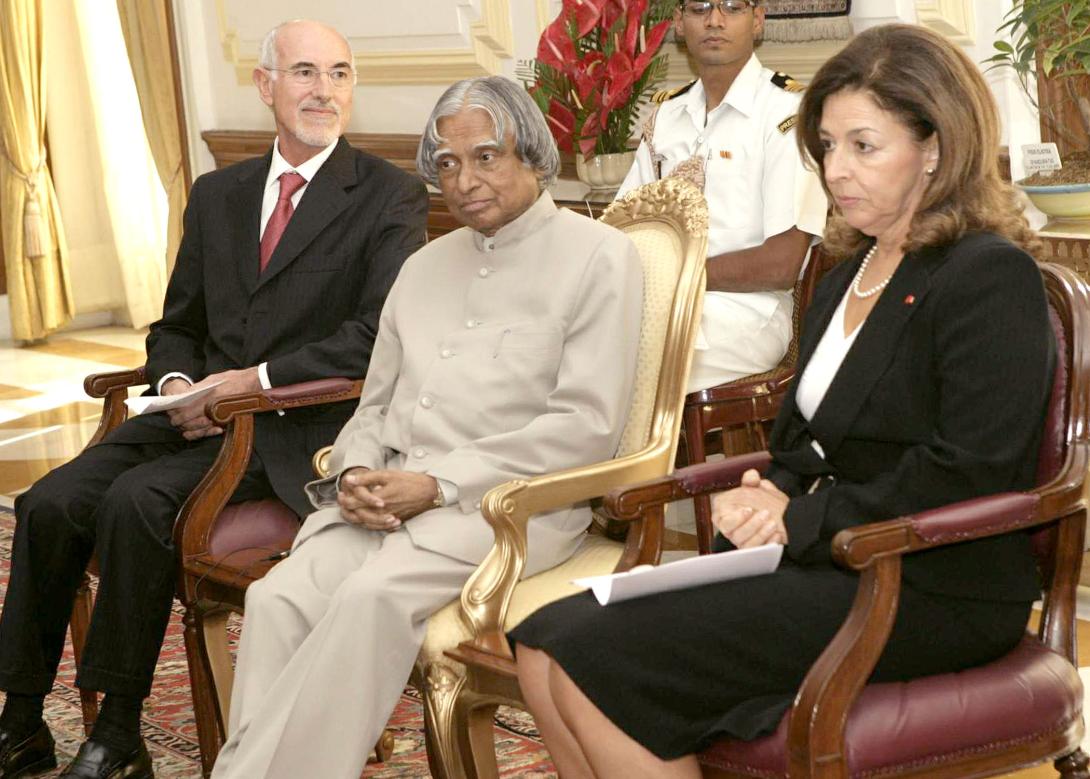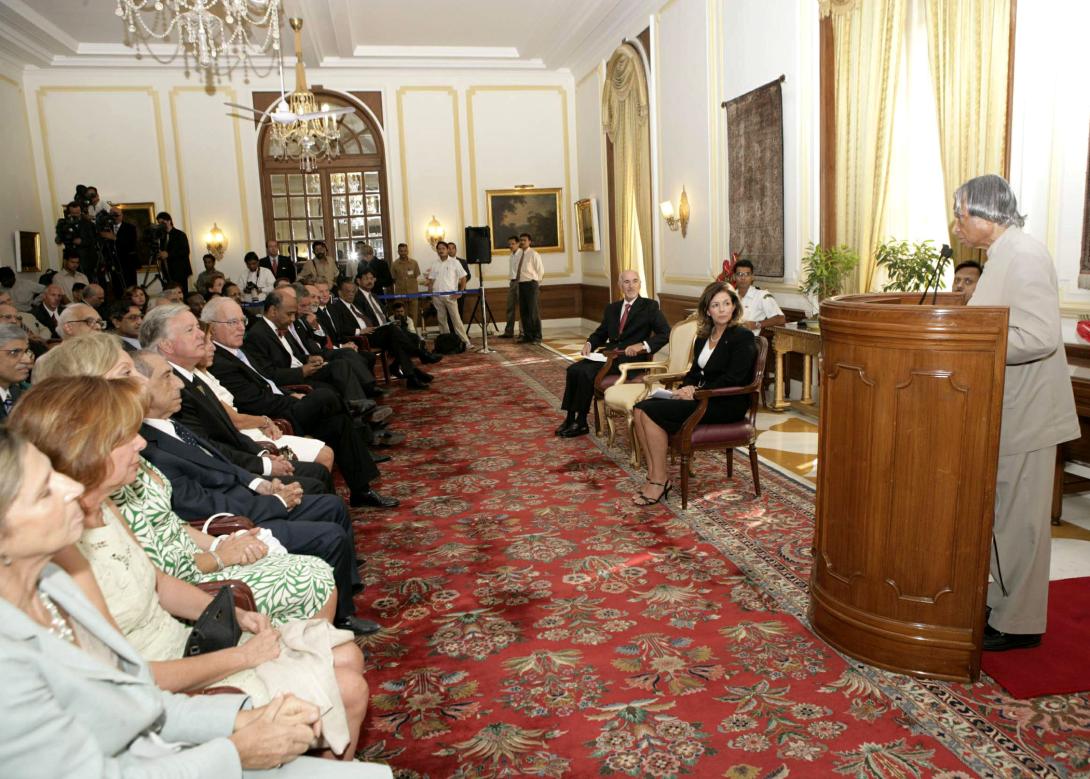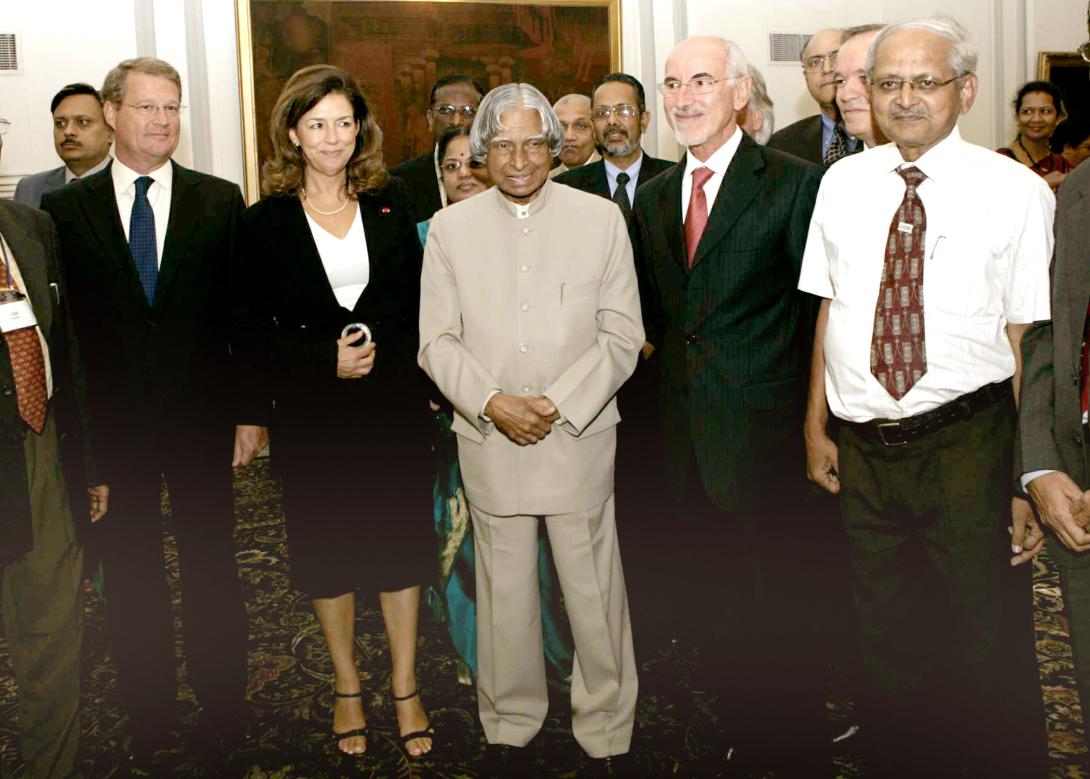Address During the Launching of Antonio Champalimaud Science Award at Rashtrapati Bhavan, New Delhi
Rashtrapati Bhavan, New Delhi : 09-10-2006
Towards a Blindness free World
I am delighted to participate in the launching of Antonio Champalimaud Science Award for supporting translational research that directly impacts the vision and alleviation of blindness. I like the caption put forward by Champalimaud Foundation ?Curiosity is a mark of Vision? and salute the benefactor Antonio de Sommer Champalimaud for his vision. I greet the organizers for their noble thought.
In the six billion populations nearly 50 million have blindness or low vision in the world. This figure increases by one to two million each year. Out of this 50 million, 40 million are in the developing nations. 85% of the total blindness is due to cataract, refractive errors, glaucoma, diabetic retinopathy and age related macular degeneration all together Hence, the concentration of the vision experts should be to find long term solution and lifestyle interventions needed for catering to this class of ailments. The interventions are: effective disease control, human resource development and infrastructure development.
Looking at the primary causes of blindness one should find solutions for delaying or preventing cataract formation. I am told that if cataract delayed by ten years billions of dollars could be saved. Since cataract happens to occur earlier in a tropical and developing nations, it severely affects the performance of the individual in his prime productive years. Thus, the research to delay in cataract formation will lead to enriched productivity of the individuals and economic growth of the nations so that the developing nations can become developed nations faster. The current initiatives in cataract management is expected to bring down the backlog to the extent of 50 million to 20 million by the year 2020 keeping the yearly additions of cataract in mind. While this is encouraging I would request the researchers to work on containment strategies which will delay or prevent cataract formation among the people. This will be the most important contribution for providing healthy vision to nearly additional 20 million people before the year 2020.
To contain refractive error we need to concentrate on better lifestyle and gene therapy. New research on glaucoma and diabetic retinopathy and age related macular degeneration should find solutions through the use of stem cell therapy and application of nano-technology. I visualize a restoration of vision in inherited eye diseases by use of stem cell therapy or application of silicone chip connected to retina or a combination of both. Also, I would request the researcher to work with the communities to develop aids using the convergence of technologies to provide vocational avenues so as to integrate them with the society as useful contributors in all growth missions.
I congratulate the Champalimaud Foundation for taking the initiative in this important noble societal mission of giving vision to all. I am sure this will encourage many groups of researchers to come out with path breaking solutions leading to the world without needless blindness. My best wishes to all the participants success in all your endeavours.
May God bless you.

